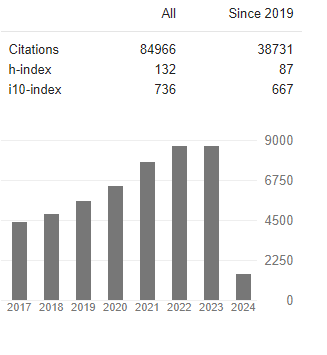Application of Nano-Biofertilizer under Abiotic Stress on the Vegetative Growth, Greenhouse Gas Emission, and Essential Oil Production of Rosemary (Rosmarinus Officinalis L.)
Abstract
Alipour Eskandari, Milad Hashemi, Alireza Sepaskhani, Milad Rostami and Zohreh Shams
This study examines the effects of year, drought stress, and different fertilizer treatments on rosemary’s growth, nutrient assimilation, and essential oil yield. Optimal growth was observed in the second year, while drought stress negatively impacted growth, which could be ameliorated by the application of nano-bio-fertilizers and bio-fertilizers. During the two-year study on rosemary, the second year displayed superior vegetative growth, but drought stress in the first year reduced essential oil percentage to 0.325% without fertilizers. Applying bio-fertilizers and nano bio-fertilizers, especially the nano-biofertilizer, increased the essential oil percentage to 1.57% in the second year despite a 30% accessible moisture condition. Under drought, rosemary’s potassium levels in leaves increased, while nitrogen and phosphorus decreased, signifying shifts in nutrient uptake. Our research suggests that strategic fertilizer application can mitigate the adverse impacts of drought stress, optimizing growth and essential oil production in rosemary. However, more research is needed to understand these observations and create more effective cultivation strategies for medicinal plants.




